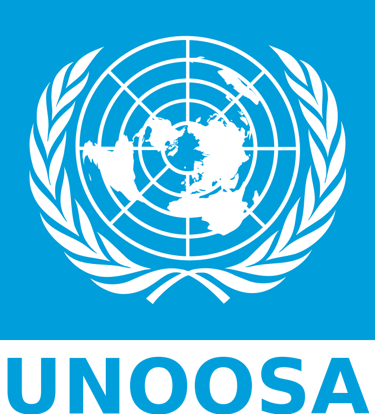Nurturing the Space-Bound Human
Dedicated to enhancing human safety and well-being in space through interdisciplinary research and innovative solutions.
Space Policy
KIFA serves as a national hub for space policy and deep spaceflight. In cooperation with the government guidelines of the space sector, the institute aims to establish a professional foundation for future human space travel, including astronauts, space tourists, and space industry professionals, while providing the resources necessary to support national priorities and governance. Additionally, KIFA will support the space strategy of the Korea Aerospace Research Institute (KARI) for the historic launch of the manned spacecraft and rockets, collaborating closely with the South Korean space industry.


Astronaut Selection and Training
The Institute is committed to establishing both scientific and humanistic standards for astronaut selection, management, and training programs. These innovative regulations will consider a diverse range of local and diaspora candidates, including military personnel, civilian experts, and individuals with flight or medical expertise, such as commanders, pilots, mission specialists, flight engineers, payload specialists, educators, and spaceflight participants. Drawing on the best practices of NASA and ESA, the two-year foundational training program will incorporate both physical conditioning and academic coursework.




Space Tourism
The space institute will collaborate with the industry to evaluate the conditions and limitations of commercial programs, such as low Earth orbit and lunar stations, from a space economics perspective. Although Orion Span’s plans for the world’s first space hotel, Aurora Station, did not succeed, the space tourism sector holds significant potential. With continued advancements and innovation, the commercial space industry is poised for growth, paving the way for future developments in space travel and exploration.


Space Medicine
and Physical Movement
Long-duration space missions involve five primary risks: radiation, isolation, distance from Earth, microgravity, and the hostile environment. Consequently, the center’s core research will focus on the physiological and biological aspects of space medicine, including cardiovascular health, telemedicine, remote monitoring, musculoskeletal, neurological, and immune systems, as well as diagnostic tools, treatment devices, and the safety of the space community during extended stays. This research will be carried out in collaboration with U.S. experts from leading institutions such as Harvard Medical School, UCLA’s Department of Space Medicine, and NASA’s Human Research Program


Spacesuit and Spacewalk System
The Korea Institute for Astronauts (KIFA), supported by the Korea Aerospace Administration (KASA) and the South Korean government, aims to design spacesuits and develop the " Spacewalk Systems" ahead of NASA's manned Mars mission in 2033. Spacesuit research will address key issues such as limited mobility due to suit inflation, the risk of decompression sickness, and compatibility challenges between different suits and spacecraft. The spacewalk systems, including manned manoeuvring units (MMUs) and in-suit drink bag (ISD), will serve as scientific and technological equipment to assess the feasibility of long-duration human space habitation, focusing on preparations for Moon and Mars missions.


Astrobiology and Space Food
Sustainable space food and space farming experiments are at the heart of KIFA’s pioneering research. Space biology and space food research play a vital role in ensuring the success of long-term space exploration. Space biology seeks to understand the potential for life beyond Earth, examining how microorganisms and other life forms may survive in extreme extraterrestrial environments. This knowledge is crucial for future human missions to the Moon, Mars, and beyond. Meanwhile, space food research focuses on developing sustainable, nutritious, and easily consumable food systems for astronauts on extended missions. Classifications of space food include beverages, fresh foods (potatoes, tomatoes, vegetables, rice, etc), irradiated meats, intermediate moisture foods, natural forms, and rehydratable foods. These studies explore innovative production methods, such as space farming and bioregenerative life support systems, to safeguard astronauts' health, well-being, and long-term survival. Based on these advancements, the center will pursue both domestic and international funding for long-term projects from organisations like ARC, Templeton, NASA, ERC, ESA, and space agencies in India, South Korea, Japan, and beyond.


Space Mental Health and Ethics
Astronauts face unique psychological challenges, such as isolation, confinement, and separation from Earth, all of which can significantly impact their mental well-being. Space mental health and ethics are critical areas of focus for long-duration missions and risk management. Research aims to develop strategies to manage stress, fear, lethargy, anxiety, abulia, addiction, trauma, and interpersonal conflicts in the space environment. Ethical considerations are equally important, ensuring astronauts’ rights, informed consent, and fair treatment across diverse genders, nationalities, and backgrounds. As humanity ventures deeper into space, addressing these psychological and ethical issues will be essential for the success and sustainability of future missions.


Space Education
The institute will collaborate with colleagues to offer space research programs for master’s and doctoral students aiming to become future scholars and experts in the field. Promotional education can be conducted for children and youth. Additionally, special programs will be provided for space-related officials from government agencies, including the Ministry of National Defence, the Ministry of Foreign Affairs, the Ministry of ICT and Technology, and the United Nations, covering areas such as space policy, security, medicine, ethics, history, and safety.
To foster the exchange of cutting-edge human spaceflight research, KIFA plans to host an international academic conference every two years, along with biannual forums. Furthermore, preparations are underway to launch a new SCI(E) or SSCI journal focused on spaceflight and human space research, and a series of space-related books will be published in collaboration with U.S. and European publishers.
